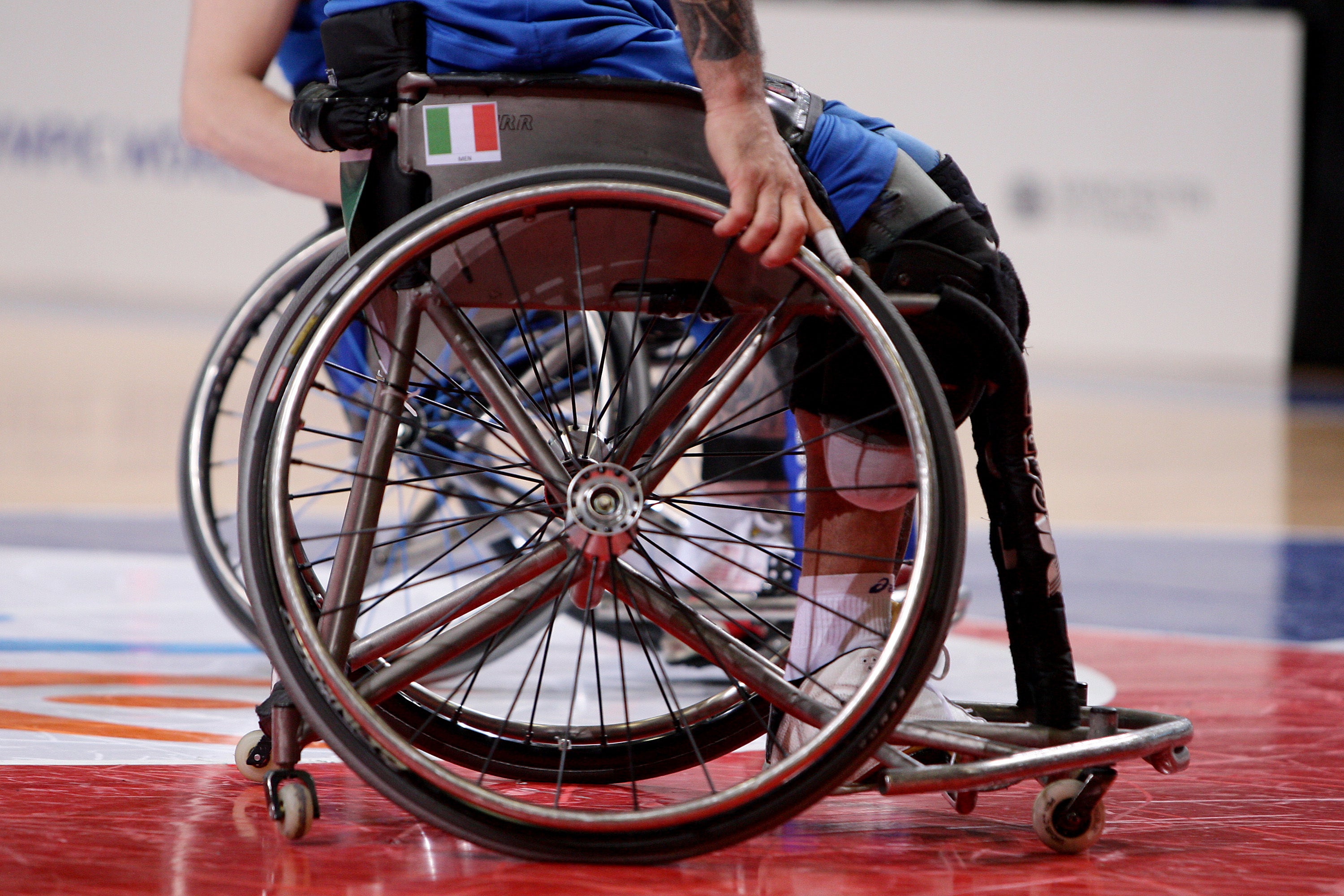Disabled people feel left out of post-pandemic sporting recovery, report says
The latest Annual Disability and Activity Survey highlights the necessity of urgent attention to tackle growing inequality

Your support helps us to tell the story
From reproductive rights to climate change to Big Tech, The Independent is on the ground when the story is developing. Whether it's investigating the financials of Elon Musk's pro-Trump PAC or producing our latest documentary, 'The A Word', which shines a light on the American women fighting for reproductive rights, we know how important it is to parse out the facts from the messaging.
At such a critical moment in US history, we need reporters on the ground. Your donation allows us to keep sending journalists to speak to both sides of the story.
The Independent is trusted by Americans across the entire political spectrum. And unlike many other quality news outlets, we choose not to lock Americans out of our reporting and analysis with paywalls. We believe quality journalism should be available to everyone, paid for by those who can afford it.
Your support makes all the difference.Disabled people feel forgotten in the sporting recovery after the Covid-19 pandemic and more effort is needed to tackle barriers relating to health, according to a report by national charity Activity Alliance.
The latest Annual Disability and Activity Survey was published on Wednesday and highlights the necessity of urgent attention to tackle growing inequalities.
More than 1,800 disabled and non-disabled respondents aged above 16 took part in the research from October to December 2021.
Key findings of the survey found that fewer than three in 10 disabled people feel encouraged to return to physical activity after the pandemic, with the support needed to be active now less available.
In contrast to non-disabled people now being more likely to say they can be as active as they want, that figure fell to just four in 10 from disabled respondents – with fewer than half (47 per cent) thinking that physical activity and exercise is for ‘someone like me’.
Despite eight in 10 wanting to be more active, the research found disabled people are being left out in the return to activity and are feeling less encouraged to be active.
Disabled people are also less likely than last year to feel activity leaders meet their needs and included them – with 78 per cent saying their impairment or condition stops them being active, often related to low awareness of suitable activities and fears about safety and risk.
It was also found there is a strong feeling that the workforce, particularly in gyms and sports or leisure centres, at many levels does not understand disability and spaces still are not fully accessible.
- ‘Involve me as we recover from the pandemic'
- ‘Support me to feel like being active is for someone like me’
- ‘Your workforce can make it a better experience for me’
- ‘Involve the health professionals I trust the most’
Activity Alliance has outlined four key recommendations for urgent change to achieve greater fairness in sport and activity – under themes of ‘Involve me as we recover from the pandemic’, ‘Support me to feel like being active is for someone like me’, ‘Your workforce can make it a better experience for me’ and ‘Involve the health professionals I trust the most’.
Former Paralympian Mark Fosbrook, strategic partnerships manager for Activity Alliance, hopes the survey’s latest findings will help move forward the debate on inequalities for disabled sportspeople.
“When you see some of the shocking figures (from the survey), disabled people are sort of in a worse position than they were before the pandemic,” Fosbrook told the PA news agency.
“There are a number of people I have spoken to who have said they don’t feel like they are being encouraged to return to activity – and the statistics have backed that up with less than three in 10 disabled people feeling encouraged to do so, even though eight out of 10 want to.
The need here is to make sure disabled people can be as active as they can
“I have experienced going back to a gym and there just doesn’t seem to be the same consideration or thought – we have always known the workforce has needed to develop and improve how they support disabled people, but there seems to be a drop in those thoughts.
“People are so worried about how those businesses are going to survive as they have been building back (since lockdown), they have not necessarily considered that wider audience and engaged with disabled people fully.”
Fosbrook, who represented Great Britain at wheelchair basketball, sitting volleyball and wheelchair rugby, added: “The need here is to make sure disabled people can be as active as they can and for urgent action on greater fairness in sport and physical activity.”
Activity Alliance chair Sam Orde said: “This year’s survey highlights the true impact of the pandemic on disabled people and the changes required so nobody feels forgotten.
“We appreciate many providers and decision makers faced enormous challenges during the pandemic, but we are almost a year from restrictions being lifted, and still hearing too many negative experiences from disabled people.
“We must double our efforts and prioritise disabled people in the recovery. Whether this is through opportunities, strategy, or investment, we need leaders to play their part and drive change through their work.”
Sport England chief executive Tim Hollingsworth commented: “This report is an important and salutary reminder of the work still to do when it comes to making sport and physical activity genuinely welcoming and inclusive for all disabled people.
“I would urge all organisations in the sector to reflect on the report and its recommendations as part of a collective effort to break down the barriers to inclusion for disabled people.”